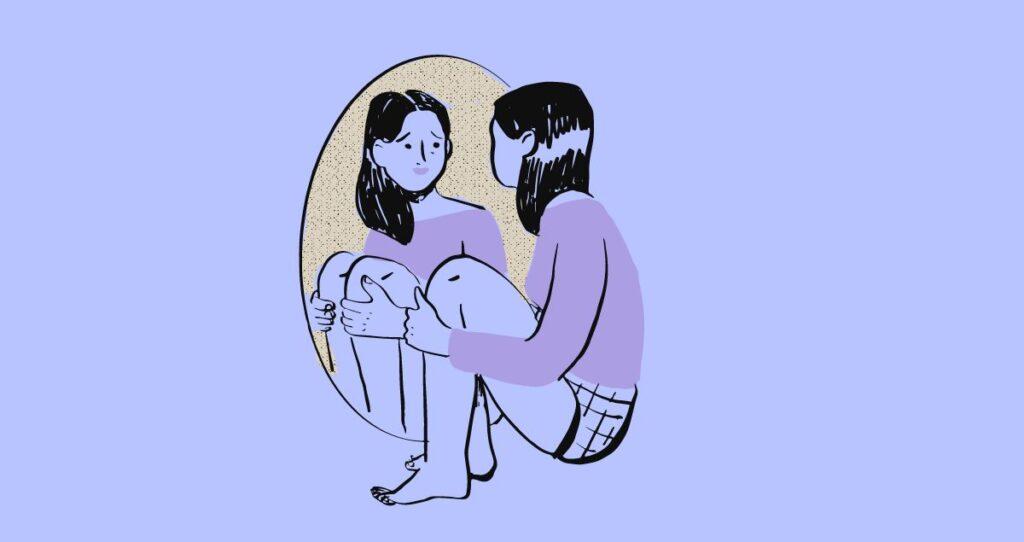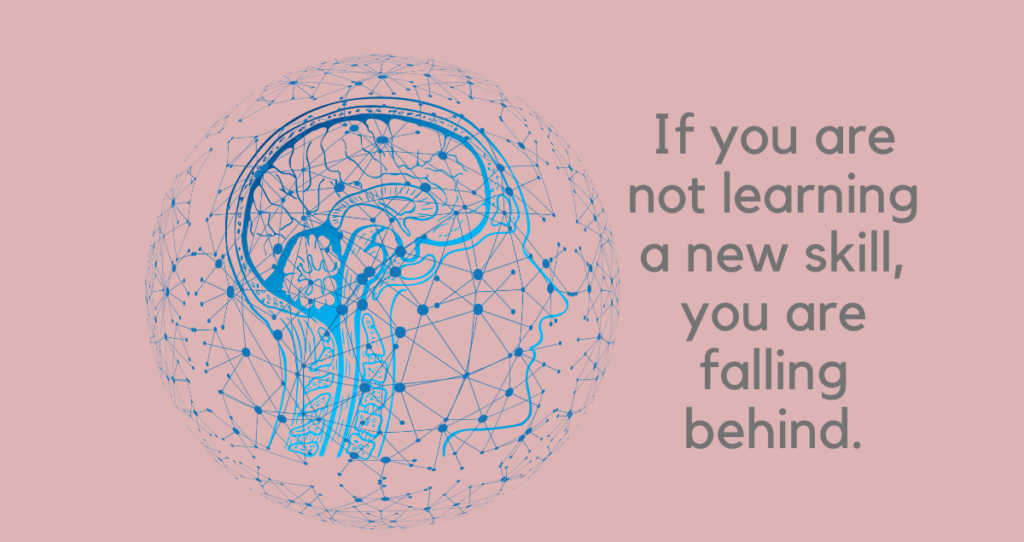Being unhappy does not happen by accident. Everything happens for a reason and your whole life is a product of your past decisions. Your happiness depends on how you view the world, process the information you receive daily, and respond to events in your life. Unhappy people exhibit common habits and if you are wondering why you, loved ones, or your neighbor is always angry, I have the answer for you.
In this article, I will walk you through the 28 most common habits of unhappy people and how to cope with happiness issues.
Without further ado, the following are the top 28 habits of unhappy people.
1. Neglecting personal care
Unhappy people often disregard their physical and mental health and engage in poor eating habits, which in turn, damages their emotional well-being. For example, if you evaluate your friends, you will notice that the unhappiest ones eat fast foods, never go to the gym, always drink, smoke, etc.
While this habit of unhappy people is prevalent, you can fight chronic unhappiness and change your life. Start exercising regularly, eat balanced nutrition, and get sufficient rest daily to boost your health and improve your happiness. Adopting these self-care habits might require more work and discipline if you are chronically unhappy. But, starting small is always the best way to accomplish great potential.
2. Too much complaining
If you have not noticed yet, unhappy people complain a lot. Whether at home or work, chronically unhappy people tend to focus on how bad things are going instead of keeping their minds on the positive side of the story. For example, if there is a simple problem, they tend to complain about it instead of figuring out ways to fix it. Even if it is their responsibility to act, they still complain. Unhappy people never take responsibility for their reactions.
Constant complaining signifies a lack of gratitude. If you struggle with a lack of happiness, counter negative self-destruction habits by regularly identifying aspects of life you appreciate. Find something positive about your situation and keep your mind on it while resolving the issue. Being grateful and focusing on positivity is a great way to improve your life and become happy.
3. Unhappy people procrastinate a lot
When I was the most unhappy, I also procrastinated a lot. I did not notice this behavior and the impact of procrastination until I focused on improving my life.
Usually, procrastination leads to poor performance, missing deadlines, increased pressure, and excessive stress. A person facing these conditions, cannot function properly or be happy. Your life is always a mess due to indecision and inability to take action.
Avoid procrastination if you want to improve your life and become happy.
Tips to overcome procrastination and be happy
- Break big tasks into smaller ones when you don’t know where to start
- Celebrate small successes
- Reward yourself for every milestone
- Ask for help instead of sitting on problems you are unable to solve
- Focus on what you will gain after winning instead of the outcome if you lose
- Set deadlines and always try to beat them
- Be organize
- Take breaks to reset and recharge your mind.
- Prioritize your tasks, focus on the important ones, and delegate to others
4. Self-isolation
Unhappy people tend to withdraw from social interactions because they think everyone is against them. Everything that goes wrong in their lives, they blame it on someone else and if they cannot find someone to blame, they feel bad about it. Chronically unhappy people think their happiness is someone else responsibility. That is why they view self-isolation as the answer to their happiness issues.
To avoid self-isolation and improve your happiness levels, maintain connections with loved ones and pursue group activities. For example, if you like sports like soccer, register for games in your area. If you like cooking or camping, join cookout activities and go camping with friends and loved ones. The more you interact with people with similar goals and positive minds, the faster you will increase your happiness level and feel good about yourself.
5. Overthinking
I hate to tell you this, but you cannot overthink and be happy simultaneously. Overthinking comes with a high level of stress that prevents you from being happy and feeling good about yourself. If you find yourself constantly overthinking about issues in your life and dealing with unnecessary stress, try mindfulness exercises and meditation. These activities allow your brain to stay present and focus, release pressure, and make you happy.
6. Constant comparison and jealousy
While being good and feeling good about yourself is essential in your development, comparing yourself with others and jealousy can rob you of your happiness. Unhappy people usually compare themselves with friends, coworkers, people on social media, etc. All these common habits of unhappy people lead to jealousy, a bad trait when pursuing happiness.
For example, most people who are chronically unhappy, get jealous when they see their neighbors and coworkers driving better cars than they have. Comparing your success with others and being jealous when you are behind puts you in constant competition that should not exist and leads to a lack of happiness.
To be happy, find inspiration in other people’s successes. For example, if you see your neighbors driving an expensive car, appreciate what you have and be inspired by their success.
7. Being a perfectionist
Perfection is a common habit of unhappy people. The hard truth is that, in this world, nothing is perfect, and trying to make things perfect usually leads to extreme stress. For example, if you are designing a product, waiting to launch your business when it is perfect can cost you the chance to secure a long-term customer.
You also get stressed when you cannot make everything perfect. Why? Because there is always room for improvement. There is no such thing as a final design that cannot be improved any further.
When you are losing happiness due to being a perfectionist, learn to accept flaws and embrace the “good enough strategy”. Instead of trying to make it perfect, try to make it good enough and acceptable and move on.
8. Ignoring emotions
Bottling up emotions leads to a build-up of stress and unhappiness. One of the commonly known habits of unhappy people is that they ignore emotions. Most people don’t realize that emotions are mental responses to their situations. For example, if you lose a game, feeling bad about it is a natural thing. In this case, you can acknowledge that the other team was good and move on to improving your training strategies. What unhappy people do instead, is to think that they are good enough and blame their failures on someone else.
A better approach to coping with emotions is acknowledging feelings and seeking help when needed. Using our game example, you can seek a better trainer to ensure you are ready and well-prepared for the next game.
9. Holding grudges
While we cannot dictate what happens to us, we control how we respond to what happens in our lives. People will do you wrong, betray you, and walk away. How you react and move on is what determines your happiness levels afterward. Most successful and happy people find a peaceful way forward through forgiveness.
Unhappy people do the opposite. Instead of forgiving their opponents, they hold grudges.
Holding grudges is one of the most common habits of unhappy people. If someone does them wrong, they keep negative and revenge feelings in the back of their minds even if someone has apologized already. What this does is keep them unhappy longer and increase their stress levels. Instead of moving on, you stay stuck in past negativity. Practicing forgiveness is one of the most effective strategies to boost your happiness level and make peace with past traumatic events.
10. Focusing on the negative
Unhappy people are usually filled with negative energy. How do you know if someone has negative energy? They always focus on negativity. Unhappy people over-emphasize the negative part of their situations. Nothing goes right in the lives of unhappy people. You cannot be happy when your mind is set on the negative side of your story.
To boost your happiness and bring positive change in your life, make it a point to recognize and appreciate the positive too. Don’t just say that the glass is always half empty. Recognize that the glass is also half full.
11. Self-criticism
While you can use self-criticism to make yourself do the right thing and improve yourself, this simple habit can also cause negative harm in your life. Unhappy people are always criticising themselves which hinders their self-esteem and personal growth. If you struggle with chronic unhappiness, avoid self-criticism and self-negative talks.
Instead, focus on finding answers by relating to what works. For example, if you are solving a problem and hit a wall, find motivation and answers on what worked or get support from others. Never put yourself down and feel miserable about it.
Tips to avoid self-criticism
- Celebrate your wins
- Focus on what works
- Seek support
- Embrace failure as part of the process
- Replace your inner voice with a neutral feeling
- Avoid negative self-talk
- Surround yourself with positive influence
- Investigate and act on the origin of self-criticism
12. Neglecting their dreams and goals
Dreams and goals are the foundation of all human success and happiness. Happy people are always working on their dreams setting up goals to achieve the next step, and tracking their progress. Unhappy people, on the other hand, ignore their dreams and never have life goals.
Having dreams and goals and working on your dreams are two different things. Most people dream but never act on their dreams. Lack of action is a common habit among unhappy people. Yes, they dream and very often establish goals. But, they never act on their goals and dreams. Desiring to achieve something without taking action increases their stress levels and makes them unhappy with themselves.
To reach happiness and feel good about yourself, establish goals and work on them daily. Happiness is found in the problems you solve and your journey. It is the journey that counts. Always know your dreams and establish goals to achieve them. Then, focus your time and energy working on them. You must pay the price if you want to be happy and taking action is one of many prices you must pay.
Read more: How to set up goals and execute them fast?
13. Lack of life balance
Having a balance in life is essential to achieving happiness. You need to be able to achieve your goals and go to work but also have time for yourself. You cannot just work for hours without having a chance to reflect on your life, have enough rest, and spend time with loved ones.
To feel positive, understand the importance of relaxation and recreation in maintaining happiness. Yes, you can work hard and make money, but that is not all you need to be happy. You also need to spend time in nature, exercise, relax, have quality time with loved ones, go out, visit a park, etc. Every positive step you make to maintain a life balance makes you happy.
14. Unhappy people are always trying to please others
If you are one of those people who are going the extra mile to make others happy, then you know why you are suffering from chronic unhappiness. You cannot be happy when you trade your time and happiness to meet other people’s needs. Unfortunately, this is one of the most common habits of unhappy people everywhere.
Trying to make other people happy leads to stress and robs you of a chance to do what makes you happy and improve your life. To bring positive influence in your life and be happy, establish personal boundaries, and prioritize your happiness. Your happiness comes first before anyone else needs.
15. Dwelling on the past
The past is there to teach us where we have been, what worked, and what did not. Unhappy people usually treat the past as a burden to bear instead of learning from it. What happy people do differently is to treat the past as a school and learn from it. For example, if you lost your savings a few years back, you can use those losses as a lesson and never gamble again.
Unhappy people don’t make the same choices. Instead, they feel bad about the losses they experienced and never make peace with those traumatic conditions. The past becomes a burden. Living in the past prevents you from enjoying the present. Focusing on the ‘now’ and planning for the future without past baggage is critical for building resilience and becoming happy.
16. Lack of self-identity
If you have noticed, one of the most common habits among unhappy people is the lack of identity. Unhappy people struggle with who they are or who they think they should be. As a result, they focus their valuable time figuring out who likes them and who does not, who gives them attention, or believes them, etc. In other words, unhappy people seek pleasure and attention from others.
17. Not living authentically
Unhappy people are characterized by a lack of authenticity in their lives. They don’t know what matters to them, who they are, their values are, etc. These behaviors force them to accept everything that comes their way and never get a chance to say no even for things that compromise their well-being. Denying your true self is a recipe for unhappiness.
Strive to live in a way that aligns with your values and desires and establish boundaries that align with your values.
18. Avoiding risks
Happiness is usually a product of the problem you have solved, the risks you have taken, and the rewards you gained. In other words, taking risks is essential in improving your life and boosting your happiness levels.
The lack of taking risks, however, is the leading cause of miserable feelings among unhappy people. The fear of taking risks prevents unhappy people from attaining personal growth. As a result, everything to them seems like a trap which leads to indecision and a pessimistic mentality. Always seek measurable risk because it is part of the journey to a lifetime of happiness.
19. Lack of self-discipline
Self-discipline is one of those habits that differentiate happy people and unhappy individuals. Self-discipline is your ability to control your emotions and decisions given circumstances.
Unhappy people struggle with negative emotions and blame everyone for their miserable lives. So, any negative act they experience becomes their opportunity to retaliate, leading to chaos and dissatisfaction. To improve your life and be happy, cultivate self-discipline through small and consistent actions. Your ability to control your emotions is a sign of maturity and a chance to make yourself happy.
20. Inability to say no
This habit might sound simple, but it is one of the most common habits among unhappy people. The lack of saying no means you take on all kinds of activities leading to overwork and always being tired. Unhappy people think that saying no will disappoint their relatives, bosses, peers, etc. That is how you see coworkers working on a project they hate simply because they cannot say no. Always saying yes can lead to burnout.
To take control of your own life and destiny, learn to evaluate requests and say no when necessary. If you don’t like it, don’t say yes. If you don’t want to do it, don’t accept it. It is that simple.
21. Lack of purpose
A person without a purpose or a goal is like a leave that only moves when the wind is blowing and follows the direction of the wind. What brings happiness is a sense of control over your time and ability to make your own decisions. Having a purpose in life helps you make those decisions that shape your destiny.
One of the top habits of unhappy people is the lack of a purpose. They don’t know what they want or how to get it. So, they sit down and wait for someone else to decide. In other words, they live lives of quite desperation. Feeling directionless and lack of control leads to unhappiness.
22. Gossiping about everything
Happy people usually do not gossip a lot. But, those struggling emotionally are always at the center of gossip. They always know what happened, who got involved, where everything happens, and what everyone around them is up to.
Instead of focusing on themselves, unhappy people focus on getting into everyone’s business. Unhappy people use gossip as a strategy to get everyone’s attention and approval. If you struggle with excessive gossip, try to focus on yourself by reading books, taking on personal development training, and surrounding yourself with strong-minded people.
23. Focusing on lack
People become unhappy because they never take action. They don’t understand that hard work and discipline are the foundation of all success. Instead, unhappy people rely on luck and wait for someone to save them. Unfortunately, luck has nothing to do with one’s happiness and prosperity. If you are waiting for luck to save you, you are in for a treat.
Start working on yourself, learn how to take action, set up goals, work hard, and stay disciplined. This is the only way your life will change.
24. Poor eating habits
You are a product of what you eat. If you are unhappy, it is due to the food you consume daily. Do you eat a lot of junk food, drink too much alcohol, and smoke daily? You cannot have a strong body and a powerful mind if you are putting your health in jeopardy. Poor eating habits are some of the common habits of unhappy people. If you are unhappy with yourself and your health is in jeopardy, look at what you eat and drink and make adjustments. You can completely change your life only by changing what you eat.
25. Addiction
Unhappy people are usually addicted to something. If they are not addicted to alcohol, video games are a major problem. Additions rob people of their happiness as they affect key parts of your brain designed for growth, survival, interaction with others, and other positive habits such as eating healthy, exercising, and setting goals.
Fighting addiction is a great strategy to improve your happiness levels. There are many strategies to recover from addiction which could include natural or seeking professional help. According to Camh, there are 5 stages of addiction recovery which include precontemplation (not ready), contemplation (getting ready), preparation (ready), action, and maintenance. Try to follow these steps by engaging in the positive encouraging activities and great support from relatives, friends, and professional support.
26. Seeing themselves as victims
Whenever something goes wrong, happy people figure out the answer to their problems and a way forward. Unhappy people, on the other hand, do the opposite. Instead of taking responsibility for their wrongdoing, unhappy people complain and play the victim card. For unhappy people, somebody else must be blamed for their problems. They don’t see themselves as responsible for their lives and the outcomes of their daily decisions.
If you play the victim car instead of solving your problems, it is time to change your thinking habits and take control of your life. The truth is that everything happening to you right now is due to your past decisions. Everything is your fault and the sooner you realize this and are willing to improve yourself, the faster your life will change.
27. Worrying too much about the future
Worrying too much about the future is one of the most common habits of unhappy people. The future is always intimidating to everyone. For unhappy people, however, the future is always grim. Even if unhappy people have all the proof they need about their prospects, it is never enough to change their minds. To them, their words are falling apart and they will always be.
Having a positive mindset and practicing self-care habits that prevent you from worrying too much are some of the best strategies to boost your happiness levels. Yes, the future is hard to figure out but worrying about it won’t change it. And certainly, it will not make it better. For this reason, you need to do all you have to do and live your life.
28. Always want to fight
We cannot talk about the common habits of unhappy people without mentioning their rages. I am sorry to mention it but unhappy people love to fight because they are always angry at something. Always, something is going wrong in the lives of emotionally challenged people and someone must be blamed for it.
Even if there is nothing wrong, unhappy people create conflicts and unnecessary drama. Emotions are always high for unhappy people and these negative emotions are discharged through rages. Emotional management and self-care habits such as mindfulness and deep breathing are some of the best ways to improve your emotional challenges. Seeking professional support is another great way to cope with excessive emotional challenges.









